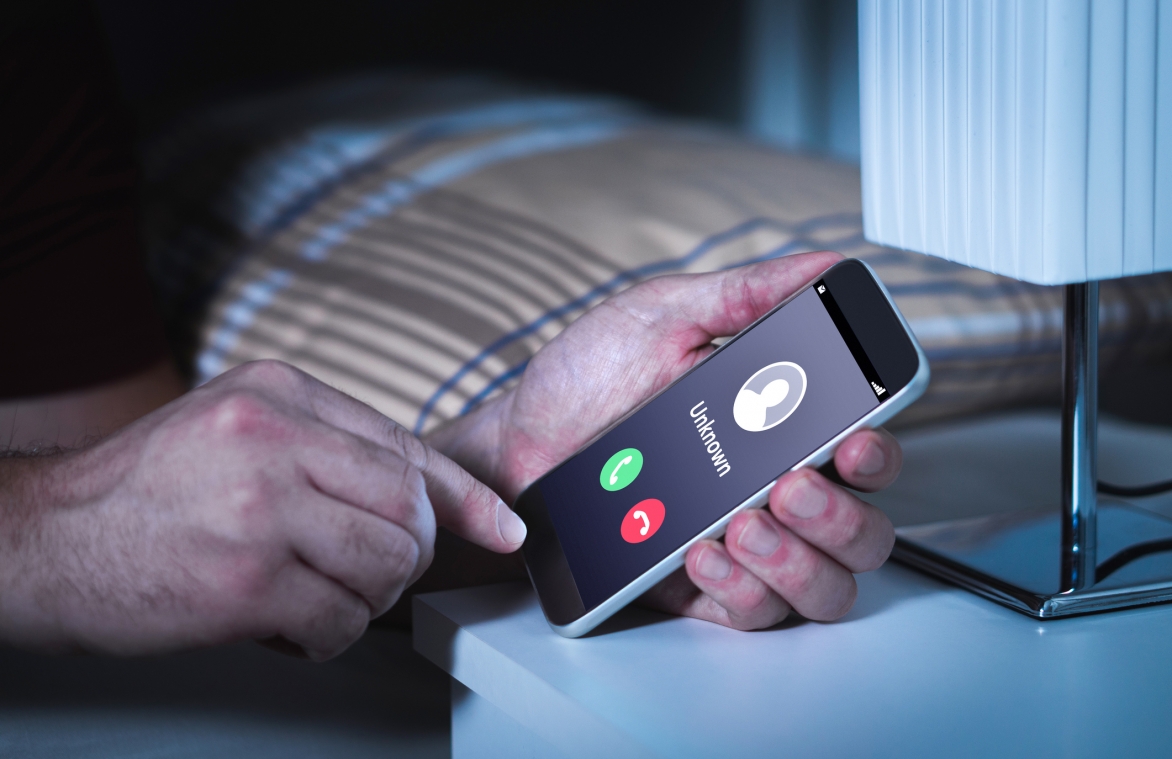Indiana’s telephone-harassment law does not violate the First Amendment or the free-expression provision of the Indiana Constitution, a state appeals court has ruled. The case involved numerous voicemail messages left by a woman to her husband’s former employer.
In September 2018, Johanna McGhehey left seven voicemail messages on the phone of Eric Elmore, the CEO of Fatheads Inc., the former place of employment of McGhehey’s husband, whom she could not find. Each message contained profanity and insults against Elmore. In one message she said, “Revenge is best served cold in Jesus’s name. I will be calling Walmart, your distributor, and shooting them an e-mail and letting them know the dirty business practices you’re doing and I have lot of dirt on you, Mr. Elmore. All you gotta do is be decent to me.”
In another voicemail she said: “It’s a good thing I’m not scared of jail. You know what, it’s not over between you and me personally, Mr. Elmore.” She further called Elmore “Jabba” and “fat-ass” and threatened to come to his residence.
In October 2018, the state charged McGhehey with harassment. At trial, McGhehey testified in her own defense, stating that she was bipolar and simply trying to find her husband.
The trial judge found her guilty of harassment and sentenced her to 180 days in jail with 176 days suspended and no probation. On appeal, McGhehey argued that (1) there was insufficient evidence to convict her of harassment, and (2) the harassment law was overbroad in violation of the First Amendment and the Indiana Constitution.
On appeal, the Indiana Court of Appeals affirmed her conviction in State v. McGhehey and upheld the constitutionality of the harassment law.
The law in question provides in pertinent part that harassment involves:
“(a) A person who, with intent to harass, annoy, or alarm another person but with no intent of legitimate communication:
“(1) makes a telephone call, whether or not a conversation ensues;”
Regarding sufficiency of the evidence, the appeals court wrote that “a reasonable person would feel harassed, annoyed, or alarmed” by McGhehey’s voicemail messages. The appeals court also noted that at least some of the messages were threatening.
The appeals court then addressed McGhehey’s claim that the harassment law violated the First Amendment. The court reasoned that “the harassment statute is content-neutral because it only applies to an intent to engage in speech rather than applying to the content of the speech itself, and it does not apply to an intent to legitimately communicate.”
The appeals court also rejected the First Amendment challenge because it found that many of the voicemails contained true threats, a category of speech not protected by the First Amendment.
Finally, the appeals court also rejected the idea that the law violated the free-expression provision of the Indiana Constitution.
The court concluded: “Moreover, because the conviction concerned proscribable speech, it did not run afoul of the federal or state rights to free speech.”
The Free Speech Center newsletter offers a digest of First Amendment and news media-related news every other week. Subscribe for free here: https://bit.ly/3kG9uiJ
David L. Hudson Jr. is a professor at Belmont University College of Law who writes and speaks regularly on First Amendment issues. He is the author of Let the Students Speak: A History of the Fight for Free Expression in American Schools (Beacon Press, 2011), and of First Amendment: Freedom of Speech(2012). Hudson is also the author of a 12-part lecture series, Freedom of Speech: Understanding the First Amendment (2018), and a 24-part lecture series, The American Constitution 101 (2019).

